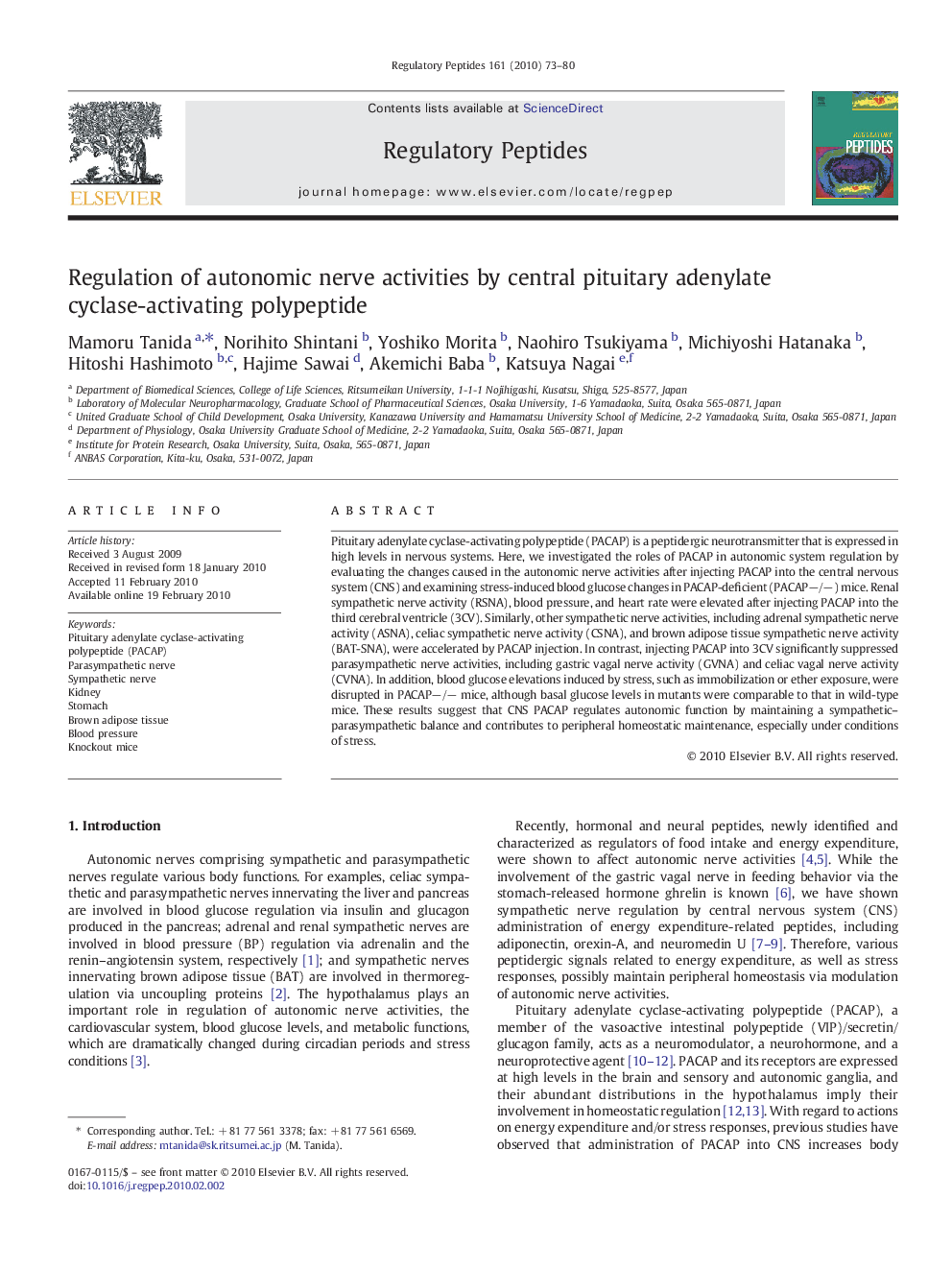| Article ID | Journal | Published Year | Pages | File Type |
|---|---|---|---|---|
| 2022840 | Regulatory Peptides | 2010 | 8 Pages |
Abstract
Pituitary adenylate cyclase-activating polypeptide (PACAP) is a peptidergic neurotransmitter that is expressed in high levels in nervous systems. Here, we investigated the roles of PACAP in autonomic system regulation by evaluating the changes caused in the autonomic nerve activities after injecting PACAP into the central nervous system (CNS) and examining stress-induced blood glucose changes in PACAP-deficient (PACAPâ/â) mice. Renal sympathetic nerve activity (RSNA), blood pressure, and heart rate were elevated after injecting PACAP into the third cerebral ventricle (3CV). Similarly, other sympathetic nerve activities, including adrenal sympathetic nerve activity (ASNA), celiac sympathetic nerve activity (CSNA), and brown adipose tissue sympathetic nerve activity (BAT-SNA), were accelerated by PACAP injection. In contrast, injecting PACAP into 3CV significantly suppressed parasympathetic nerve activities, including gastric vagal nerve activity (GVNA) and celiac vagal nerve activity (CVNA). In addition, blood glucose elevations induced by stress, such as immobilization or ether exposure, were disrupted in PACAPâ/â mice, although basal glucose levels in mutants were comparable to that in wild-type mice. These results suggest that CNS PACAP regulates autonomic function by maintaining a sympathetic-parasympathetic balance and contributes to peripheral homeostatic maintenance, especially under conditions of stress.
Keywords
Related Topics
Life Sciences
Biochemistry, Genetics and Molecular Biology
Biochemistry
Authors
Mamoru Tanida, Norihito Shintani, Yoshiko Morita, Naohiro Tsukiyama, Michiyoshi Hatanaka, Hitoshi Hashimoto, Hajime Sawai, Akemichi Baba, Katsuya Nagai,
